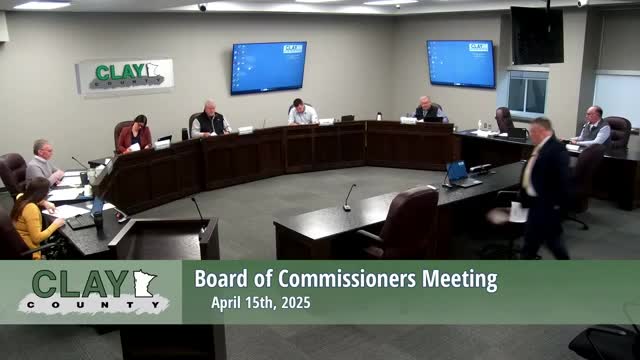Article not found
This article is no longer available. But don't worry—we've gathered other articles that discuss the same topic.
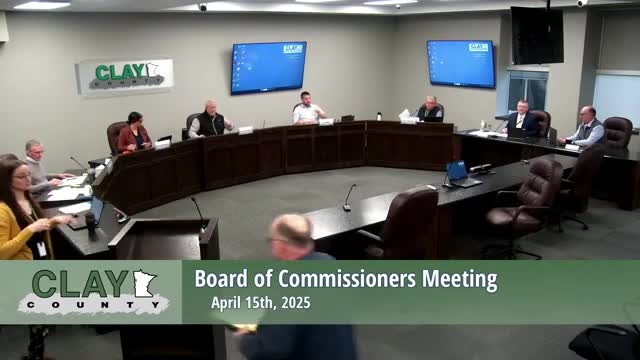
Resident asks Clay County commissioners to require economic, environmental and traffic studies before trust application for casino
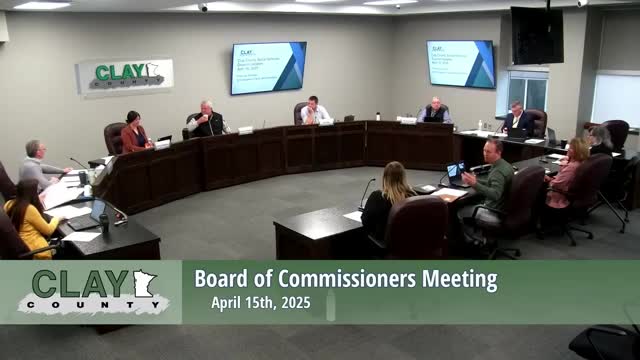
Clay County social services report shows high workload, rising long-term-care cases and strong child-support collections
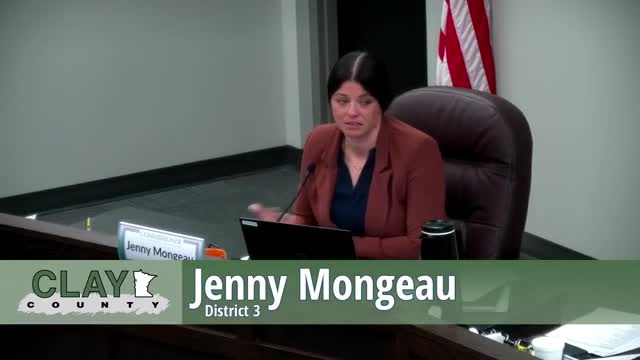
Board signs letter of support for Red River Communications BEAD bid, pledges $5,000 ARPA if grant awarded
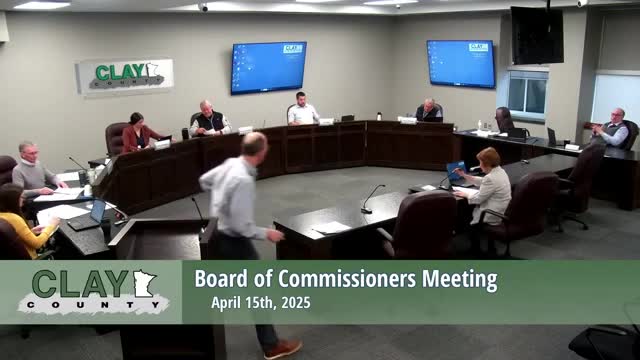
Clay County OKs application for two MDH grants; post-award hiring contingent on funding
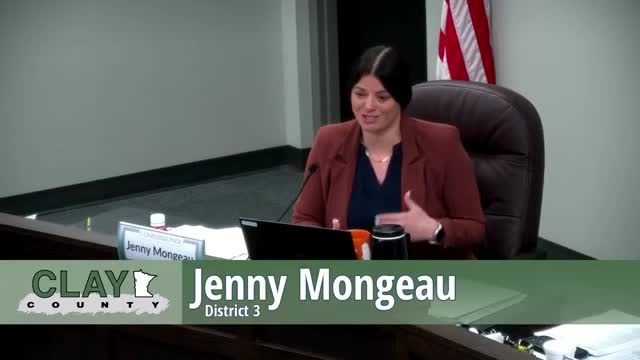
Clay County approves plan to allocate $832,772 in riparian-aid funds across five categories
